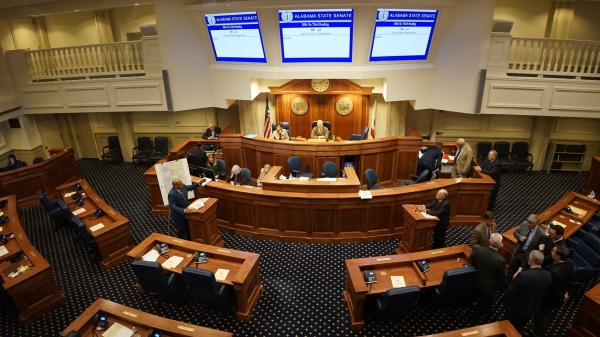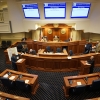Governor Ivey’s push for a $25 million statewide expansion of Alabama’s high-quality, voluntary First Class Pre-K program was endorsed today by business and community leaders from across the state. If approved by the state Legislature, the proposed funding increase would add at least 160 new classrooms next year and help enroll at least 2,889 additional four-year-olds.
The Alabama School Readiness Alliance Pre-K Task Force included its support for Governor Ivey’s budget request in its 2020 Legislative Recommendations. The ASRA Pre-K Task Force consists of more than 60 prominent leaders from the business, education, civic, medical, legal, philanthropic, military, and child advocacy communities.
In addition to increased funding in FY2021, the Task Force’s plan proposes a series of recommendations to fully fund the state’s First Class Pre-K program by the 2022-23 school year while maintaining the program’s benchmarks for quality and accountability. The Pre-K Task Force’s Recommendations are available in their entirety at https://www.alabamaschoolreadiness.org/asra-pre-k-task-force-recommendations/.
“We are not there yet, but the state is moving in the right direction to provide high-quality, voluntary pre-k to all families that want it,” said Mike Luce and Bob Powers, business leaders and co-chairs of the Alabama School Readiness Alliance Pre-K Task Force. “The Alabama School Readiness Alliance’s Pre-K Task Force is pleased that Governor Ivey is once again prioritizing additional funds to add more pre-k classrooms across the state. We stand with Governor Ivey and encourage lawmakers to appropriate the $25 million increase outlined in her proposal.”
For 13 years in a row, the National Institute for Early Education Research has ranked Alabama’s pre-k program as the number one state-funded pre-kindergarten program in the country for quality. Research by the Public Affairs Research Council of Alabama and the University of Alabama at Birmingham has found that students who participate in a First Class Pre-K classroom – regardless of demographics, zip code or school – are more likely to be proficient in math and reading than their peers.
The Alabama Department of Early Childhood Education manages the First Class Pre-K program. It allocates funding for the First Class Pre-K program through a competitive application process. Public and private schools, child care centers, faith-based centers, Head Start programs, nonprofits, universities, and other community-based providers are all eligible to apply. Potential providers can apply for three different levels of funding: an excellence classroom (up to $50,400), tiered funding (ranges from $86,904 to $100,008), and a new classroom (up to $120,000). Applications for First Class Pre-K classroom funding are due March 13 on the Department’s website, www.children.alabama.gov.
The ASRA Pre-K Task Force first proposed expanding voluntary pre-k access to all families in 2012. Since then, state leaders have incrementally increased the level of investment in Alabama’s First Class Pre-K program from $19 million to $122.8 million. In 2012, the program enrolled just six percent of Alabama’s four-year-olds. In the 2019-20 school year, nearly 40 percent of Alabama’s four-year-olds attend First Class Pre-K.























































